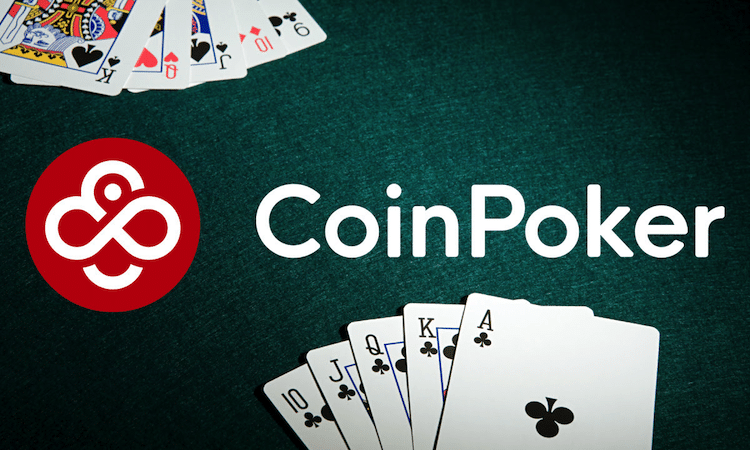Canada’s financial watchdog, FINTRAC (Financial Transactions and Reports Analysis Centre of Canada), has issued a stark warning about the suspected exploitation of online gambling platforms for laundering money linked to fentanyl production and trafficking. This revelation brings attention to a troubling connection between the online gaming industry and the country’s ongoing opioid crisis, which has had devastating effects in recent years.
Online Gambling Platforms Used to Conceal Illegal Profits
According to FINTRAC, numerous digital gambling platforms are suspected of being leveraged as tools to conceal illicit funds generated through fentanyl trafficking. Criminals linked to the drug trade have allegedly made significant deposits into online casinos, subsequently withdrawing the funds via payment processors based in Canada, Malta, and the United Kingdom. These transactions are then disguised as legitimate gambling winnings.
The primary concern for investigators is how these activities successfully obscure the true origins of the funds. By routing money through payment processors, the transactions appear lawful to banks and other financial institutions, making it significantly harder to trace illegal activities. While regulated gambling platforms are equipped with anti-money laundering (AML) measures, these protections are far from infallible. Additionally, unlicensed operators often lack the necessary safeguards, creating further vulnerabilities in the system.
Organized Crime Networks Drive the Problem
Between 2020 and 2023, FINTRAC reviewed 5,000 suspicious transaction reports tied to fentanyl and synthetic opioid distribution across Canada. The findings revealed a network of individuals frequently purchasing chemicals and equipment used for drug production, with much of the supply originating from China and India. Major cities like Vancouver and Toronto have become key distribution hubs for these illicit substances, with transactions often facilitated through darknet marketplaces and cryptocurrencies.
At the core of this operation are organized crime groups employing sophisticated methods to evade detection. For instance, these groups commonly channel bank payments through intermediary countries, such as Singapore, South Korea, and Hong Kong, to avoid scrutiny. FINTRAC’s investigation uncovered that payment processors associated with online casinos play a critical role in further obscuring these illegal activities.
Challenges for Law Enforcement
The intricate relationship between online gambling and drug trafficking presents significant challenges for Canadian law enforcement. The online gambling industry, which has experienced tremendous growth in recent years, is particularly vulnerable to exploitation due to its digital nature and global reach. Criminal organizations have capitalized on these vulnerabilities, turning online platforms into convenient tools for laundering their proceeds.
Addressing these issues demands collaboration among multiple stakeholders, including law enforcement agencies, financial institutions, and international regulators. Such cooperation is essential to implementing effective measures to detect and deter illicit financial activities.
Global Implications of the Problem
The concerns raised by FINTRAC are not limited to Canada. Countries around the world have also flagged the use of online platforms in laundering money linked to transnational crimes. As online gambling continues to grow in popularity, its role in enabling financial crimes has become an international issue. Enhanced monitoring of payment processors and stricter global regulations are critical steps in mitigating these risks.
Strengthening Measures Against Financial Crimes
FINTRAC’s warning coincides with broader efforts to raise awareness and improve detection capabilities within the gambling and financial sectors. The agency has emphasized the importance of cooperation between domestic and international partners to safeguard communities from the dangers posed by fentanyl and other synthetic opioids.
Sarah Paquet, FINTRAC’s director and CEO, highlighted the organization’s commitment to combating these threats:
We are dedicated to working alongside our domestic partners and North American allies to protect our communities and citizens from the scourge of fentanyl and other illegal synthetic opioids fueled by transnational organized crime. -Sarah Paquet
Expanded Focus on Emerging Trends
In addition to its findings, FINTRAC has underscored the need for ongoing vigilance as criminal organizations continuously adapt their methods. The integration of cryptocurrencies and other digital financial tools in these schemes adds another layer of complexity, requiring innovative strategies to combat their misuse. International collaboration has proven vital, as jurisdictions share intelligence and develop best practices for identifying and addressing money laundering risks within the gambling industry.
A Worldwide Concern
Money laundering through online casinos and cryptocurrencies has become a significant concern for law enforcement agencies worldwide. In one notable case, the UK’s National Crime Agency (NCA) led an international operation, dubbed Operation Destabilise, which dismantled a billion-dollar Russian money-laundering network. This network, operated by individuals such as Ekaterina Zhdanova and George Rossi, laundered funds for drug dealers, financial criminals, and foreign spies. The scheme involved converting illicit cash into cryptocurrency, facilitating various illegal activities, including drug trafficking and evasion of international sanctions. The operation resulted in 84 arrests and the seizure of over £20 million in cash and cryptocurrencies.
In another significant case, Roman Sterlingov operated Bitcoin Fog, a cryptocurrency “mixer” service, from 2011 through 2021. Bitcoin Fog was designed to obfuscate the origins of cryptocurrency transactions, making it a popular tool among criminals seeking to launder illicit proceeds. Over its decade-long operation, the service moved over 1.2 million bitcoin, valued at approximately $400 million at the time of the transactions. Sterlingov was convicted of money laundering conspiracy, highlighting the challenges posed by such anonymizing services in the cryptocurrency space.
The 2016 Bitfinex hack further illustrates the complexities of cryptocurrency-related money laundering. Hackers stole approximately 119,756 bitcoin, worth about $71 million at the time, from the Bitfinex exchange. Ilya Lichtenstein and his wife, Heather Morgan, were later charged with conspiring to launder the stolen bitcoin. They employed a series of sophisticated techniques to move the funds through various accounts and platforms, attempting to obscure the money trail. In February 2022, authorities seized a portion of the stolen bitcoin, then valued at $3.6 billion, marking one of the largest financial seizures in history.
Moving Forward
The evolving nexus between online gambling and drug trafficking calls for heightened scrutiny and coordinated efforts to dismantle these criminal networks. As Canada and other nations confront the challenges posed by these illicit activities, they remain committed to fostering transparency and accountability in the online gambling sector. Through joint action and stricter regulatory oversight, the global community can work toward curbing the exploitation of digital platforms for illegal purposes.
CoinPoker: Revolutionizing Online Poker with Blockchain Technology
A legitimate, legal platform, CoinPoker is setting a new standard in the online poker world by leveraging blockchain technology to build a secure, transparent, and decentralized gaming platform. By integrating cryptocurrency solutions, the platform tackles critical issues such as slow transaction speeds, geographical limitations, and the risks associated with centralized systems. With its innovative blockchain-based infrastructure, which guarantees fair play and instant payouts, CoinPoker appeals to a wide range of players—from casual enthusiasts to professional poker players.
Transparency Through Blockchain: A Commitment to Fair Play
What sets CoinPoker apart is its unwavering dedication to fairness and transparency. Traditional online poker platforms often require players to trust their fairness without tangible proof. CoinPoker eliminates this uncertainty by utilizing blockchain technology to record and store every game result. This enables players to independently verify the fairness of each hand. Furthermore, the platform employs an openly auditable random number generator (RNG), enhancing its reputation as a trustworthy and reliable online poker destination.
CHP Tokens: Speedy Transactions with Minimal Fees
Central to CoinPoker’s ecosystem is its native cryptocurrency, CHP (Chips), which facilitates seamless financial transactions. Players can use CHP to join games, enter tournaments, and withdraw winnings almost instantly. In addition to CHP, the platform supports other popular cryptocurrencies like Bitcoin and Ethereum, giving users flexible payment options. By removing intermediaries, CoinPoker ensures faster deposits and withdrawals while significantly lowering transaction fees, making the platform accessible to players globally.
Engaging Promotions and Rewarding Loyalty Programs
CoinPoker excels in keeping its players engaged through a variety of promotions and loyalty rewards. From freeroll tournaments and welcome bonuses to rakeback offers, there are plenty of opportunities for players to maximize their gaming experience. Holding CHP tokens unlocks additional benefits, including exclusive rewards that incentivize long-term participation. Regular leaderboard competitions, special events, and promotional campaigns ensure there’s always something exciting for players to look forward to.
Building a Community-Driven Platform
A standout feature of CoinPoker is its strong focus on community involvement. The platform prioritizes player feedback, incorporating suggestions into updates and new features to enhance the overall experience. Active engagement through social media and community forums fosters a vibrant and interactive environment where players can connect and share ideas. This dedication to community has earned CoinPoker a loyal and enthusiastic user base.
CoinPoker’s ambassador program further strengthens its community spirit. For example, Bobby James, a CoinPoker ambassador, recently achieved fifth place at the 2024 EPT Cyprus Main Event, earning $271,400. To celebrate, CoinPoker organized a special Sunday giveaway event, engaging fans via social media. Similarly, ambassador Patrick Leonard secured 28th place at the same event, winning $26,600. These ambassadors not only inspire the community but also elevate CoinPoker’s profile in the competitive poker landscape.
A Vision for the Future of Online Poker
As blockchain technology continues to transform the online gaming industry, CoinPoker remains at the forefront of this evolution. By embracing cryptocurrency, prioritizing transparency, and focusing on user satisfaction, the platform has established itself as a leader in the online poker space. Looking ahead, CoinPoker plans to expand its game portfolio, forge strategic partnerships, and further refine its user experience to cement its status as a premier destination for poker enthusiasts worldwide.
Discover how blockchain technology is reshaping the online poker experience by visiting CoinPoker’s official website. Join the revolution and see why CoinPoker is the future of online poker.
Related News
- Canada’s Cryptocurrency Scam Issue Is Getting Out of Hand
- Online Gambling Boom Causing Issues in Germany and Canada
- Crypto Casino – Play Online Games at CoinPoker Bitcoin and Crypto Casino Games on CoinPoker
- Crypto Millionaire James Fickel Loses $43 Million On Ethereum Long Bet After Missing $17.2 Million Profit Opportunity
Lucky Block Casino - Decentralized Gambling Platform

- Bet With Crypto - BTC, ETH, USDT, LBLOCK and More
- Live Dealers - luckyblock.com
- Rated Best New Crypto Casino - No KYC
- Thousands of Slots, Blackjack, Roulette Games




